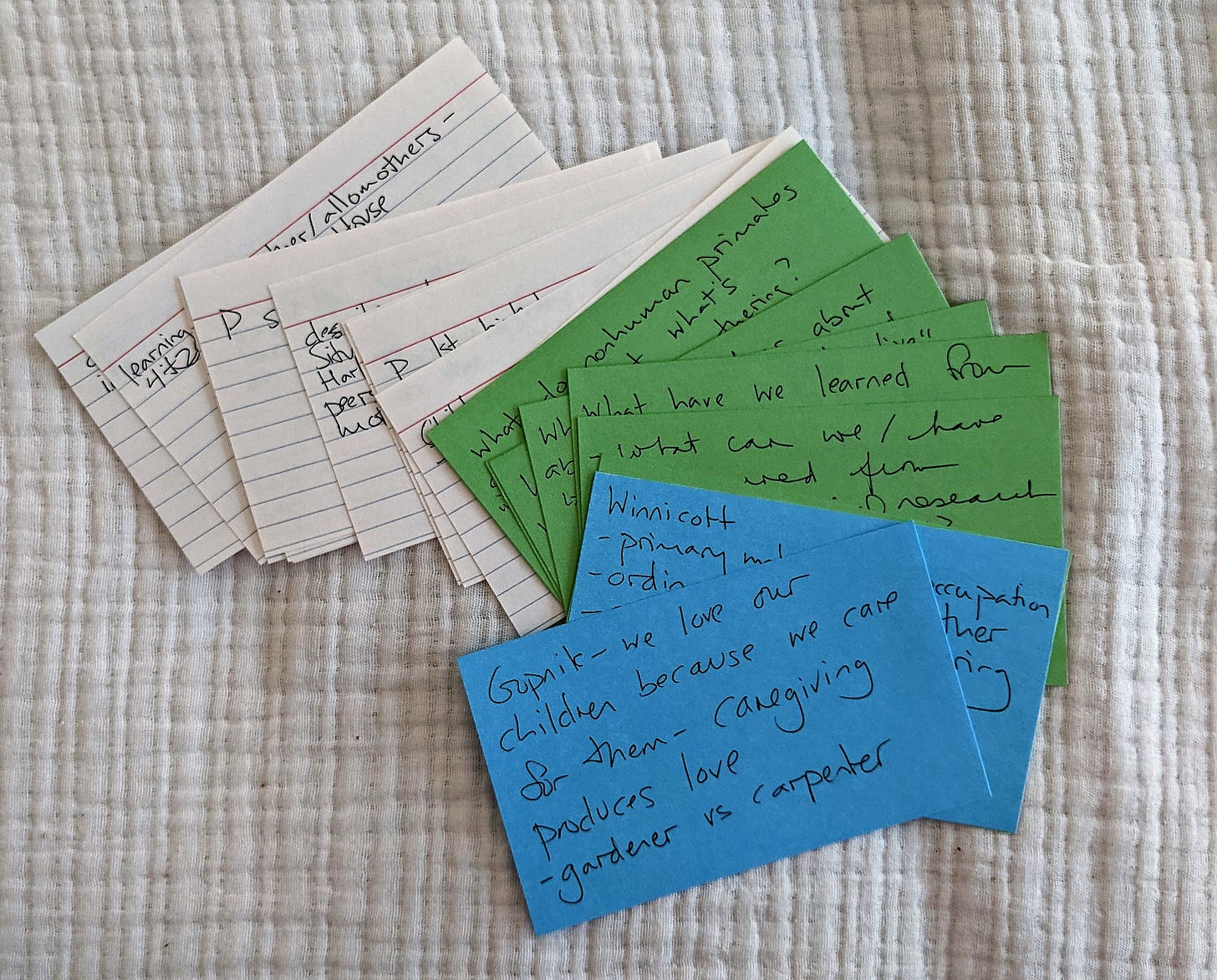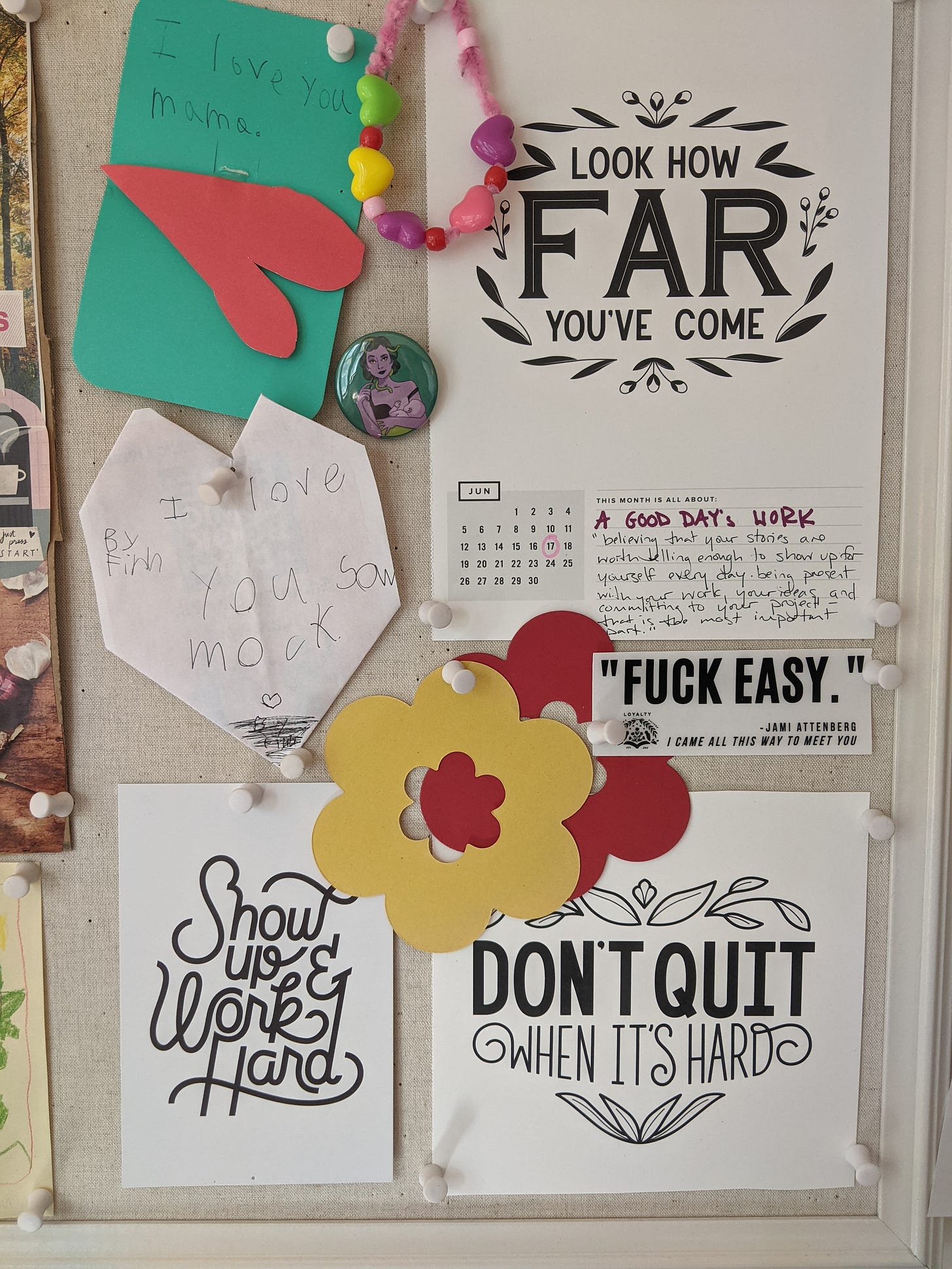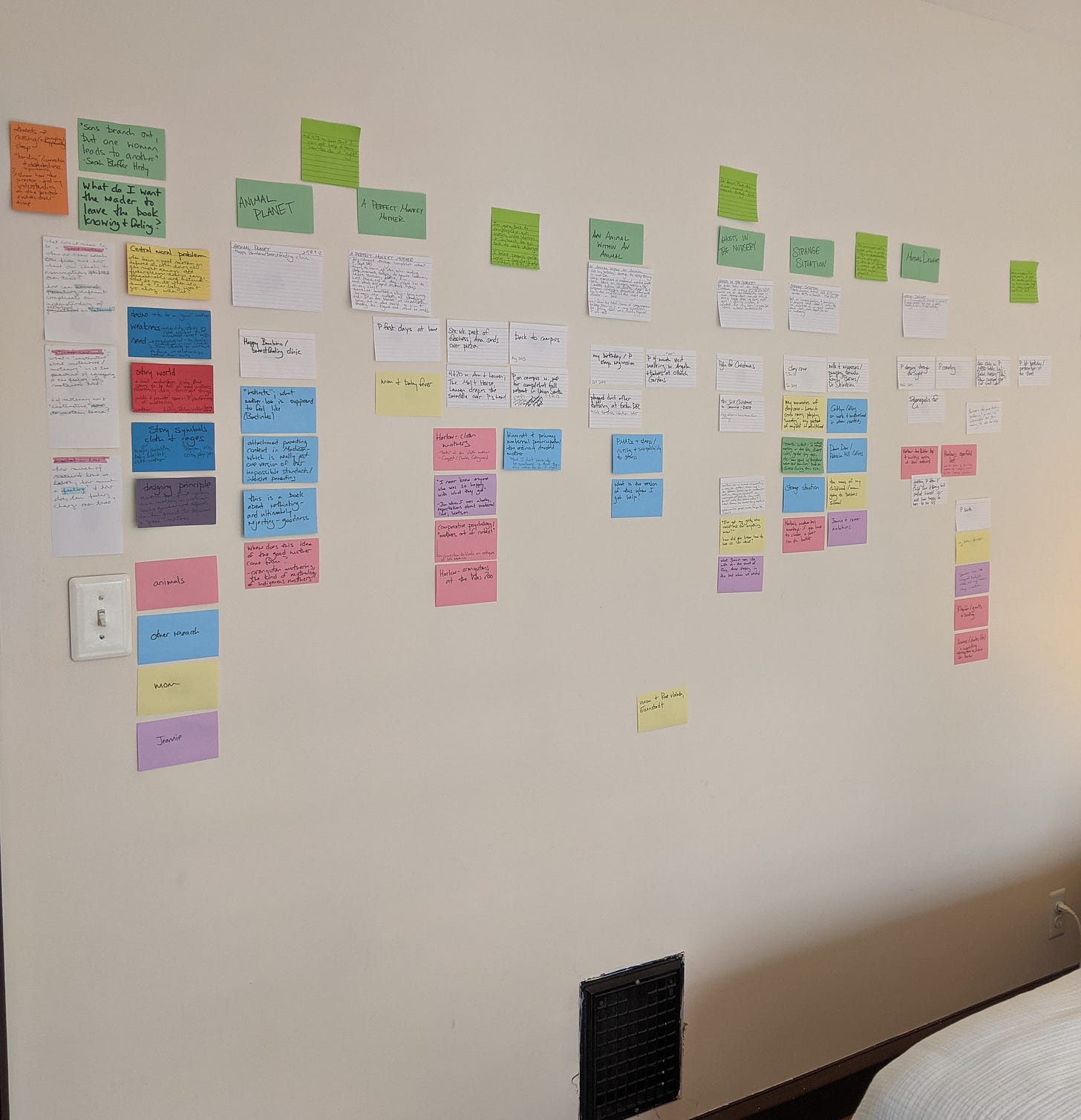Happy #1000wordsofsummer eve! What, that’s not a real holiday? Can we celebrate it anyway?
(I’ve talked about the #1000wordsofsummer before, I think. You can read about it and sign up here.)
This is earlier than my planned mid-month pop-in, but I wanted to a) remind you that you can still join #1000wordsofsummer, starting tomorrow and b) share a few things that have been working for me in my writing lately. (And a bunch of new folks have joined us recently! Welcome! The last post was about accountability and setting writing intentions for June, so you can click back to read, if that’s your thing.)
I re-read this post, about how to prep for the #1000wordsofsummer, this morning, and the two steps that really resonated with me were
Strategize what you want to write.
Commit to what you want to accomplish.
In the past, I’ve typically just written wildly into whatever was on my mind, but this year, I’m trying to be a little more strategic, so I wrote up a list of assignments and put them on index cards. Each morning, I’ll flip through and choose one to get started writing. I think some of the assignments will only actually take a couple hundred words, so some days I may work through more than one index card, and some assignments might actually be more than one day’s work. I like the mix of direction and choice in a pack of index cards; I’ve given myself a place to start, but not committed too solidly in advance to what I’m writing.

I know a bunch of you are writing in this year’s #1000wordsofsummer. What have you done to prepare? I’d love to know how it’s going!
what’s working now
I’m deep in big revisions on a book proposal, and I’ve been thinking about how to maintain a sense of progress and momentum in a stage of the work that’s really conceptual and necessarily kind of mushy. I thought I’d share a couple things that are helping:
clearly delineated writing time with rules about what I do and don’t do during that time. (for me, that means—phone in another room, and a browser extension that blocks out email and social media during those hours)
a visual tracker for that time. (I’ve been outlining my planned writing time on my planner in pink highlighter, then when I’m done with each writing session, I fill in the block.)
a today and tomorrow list at the end of each day. (when I finish each day, I write a quick—like, truly, one or two sentences, or a fragment—list of what I’ve done, then a note about what I want to work on the next day. this is especially helpful because my work right now is pretty squishy—sometimes what I’ve done is discover an important key word or think about the shape of the book, which doesn’t produce word count but is important; the today/tomorrow helps me think about what I’ve accomplished and what I need to do next. it’s modeled very lightly on Cal Newport’s closing ritual, which he talks about in this podcast and his book Deep Work.)
If you’d like additional suggestions, you might be interested in this piece by Jocelyn Glei, How to Feel Progress, in which Glei writes,
Because everything takes longer than you think it will — even when you know it will take longer than you think it will — tracking progress is crucial. If you’re not going to hit the finish line on time, the only way to stay engaged is to feel, at the very least, a satisfying sense of momentum.
(And if you’re really overwhelmed, you can always start by just doing one small thing.)

a few fun things
I was on the Mother Plus podcast recently talking about our “bonkers expectations” for motherhood.
Pocket Universe and The Long Devotion were included in this great Evil Witches round-up.
Artists and Writers Residency in Parenthood, the zoom panel I cohosted with my Long Devotion co-editor Emily Pérez and Caroline Grant from the Sustainable Arts Foundation, is now up on YouTube, if you’d like to watch.
And you can find a handout with information about our panelists and resources to sustain your own creative practice here.
I’ve talked before about using the one-hour loop to hypnotize myself into writing. Right now, I’m really into Florence and the Machine’s Free. That link will take you to a one-hour loop, but you should also check out the video below, which is beautiful. These lines feel especially resonant right now: Is this how it is? Is this how it’s always been? To exist in the face of suffering & death & somehow still keep singing?
I’ll be back later this month with a great guest post from a fiction writer (I know! it’s a first!). In the meanwhile, I hope you’ll find a way to keep singing.
I’d love to hear from you. You can always reply to this email, comment below, or find me on twitter (@nancy_reddy) and instagram (@nancy.o.reddy).





